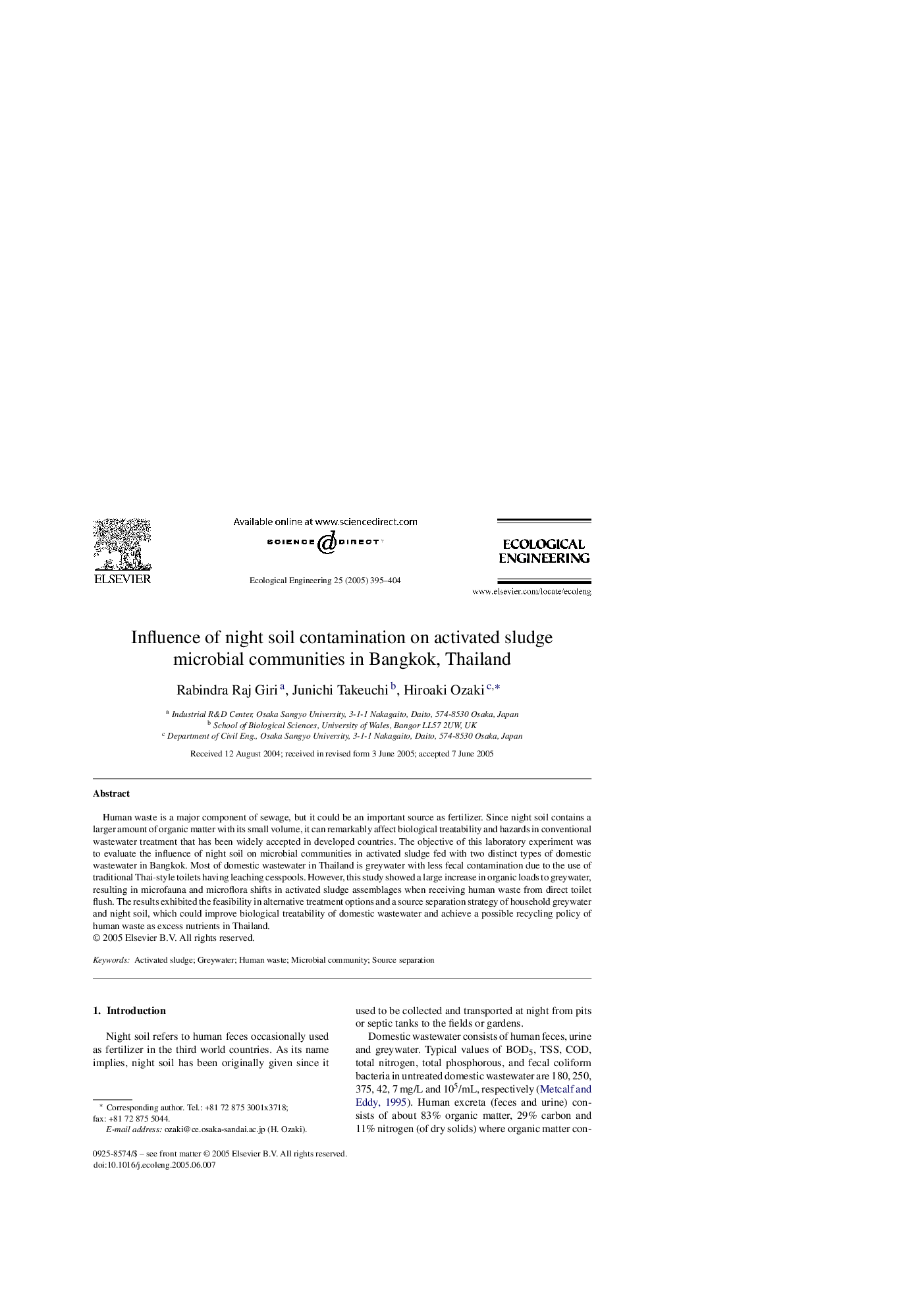| Article ID | Journal | Published Year | Pages | File Type |
|---|---|---|---|---|
| 9447564 | Ecological Engineering | 2005 | 10 Pages |
Abstract
Human waste is a major component of sewage, but it could be an important source as fertilizer. Since night soil contains a larger amount of organic matter with its small volume, it can remarkably affect biological treatability and hazards in conventional wastewater treatment that has been widely accepted in developed countries. The objective of this laboratory experiment was to evaluate the influence of night soil on microbial communities in activated sludge fed with two distinct types of domestic wastewater in Bangkok. Most of domestic wastewater in Thailand is greywater with less fecal contamination due to the use of traditional Thai-style toilets having leaching cesspools. However, this study showed a large increase in organic loads to greywater, resulting in microfauna and microflora shifts in activated sludge assemblages when receiving human waste from direct toilet flush. The results exhibited the feasibility in alternative treatment options and a source separation strategy of household greywater and night soil, which could improve biological treatability of domestic wastewater and achieve a possible recycling policy of human waste as excess nutrients in Thailand.
Related Topics
Life Sciences
Agricultural and Biological Sciences
Ecology, Evolution, Behavior and Systematics
Authors
Rabindra Raj Giri, Junichi Takeuchi, Hiroaki Ozaki,
